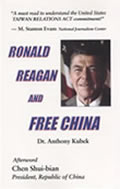Other
DeWeese
Articles:
UN Wants Control of The Seas With US Senate's Help
Total Surveillance Equals Total Tyranny
Loosing Your Liberty in The Name of Fighting Terrorism
The Faith-Based Initiative is a Trojan Horse
PATRIOTS
vs. POLITICIANS
PART 1 of 2
By
Tom DeWeese
November 13, 2007
NewsWithViews.com
Many of the younger generation must be truly bewildered over the emotions older Americans display when expressing love, devotion, respect and reverence for our country. A tear in the eye for a patriotic song... a hand over the heart as the national anthem plays... a salute to the flag as it passes in a parade. Why would we older folks do that?
What frame of reference could younger Americans possibly have? Patriotism, nationalism - even American citizenship are taboo in today's school curriculum. Globalism, diversity, and political correctness trump real history, sound economics, and science. Communism is just another economic system. The Founding Fathers are simply old, dead white guys. The UN's Declaration on Human Rights trumps the Declaration of Independence.
Where are the heroes for today's young people to admire? Principled leaders who understood the roots of America's greatness now are replaced by blow-dried sound-byte kings whose professional campaign staffs understand only how to maneuver a special interest group or a voting block.
How can young people make decisions in the voting booth? Who can they choose? Are there any candidates who offer anything other than meaningless gibberish? Perhaps if today's young people could learn some of the history that brings the older generation a sense of pride... perhaps if they could be helped to understand that ordinary people in history understood that there were issues worth sacrificing and even dying for, then perhaps they could help demand a better future for themselves.
Here are three little known examples from three separate eras of our nation's history which demonstrate how Americans once thought; how they once stood proud, ready to defend ideals to the death if necessary; how the rest of the world understood that such unwavering devotion to those ideals meant our word was true; and that America offered the human race something different, something wonderful. It meant that Americans were more secure, more prosperous and happier than any people in history.
Perhaps, with these examples, today's young Americans will understand that the tear in an eye or the hand over a heart expressed by the older generation wasn't for a flag or a song. Instead it was for the actions taken by the men and women who fought to make those items symbols of freedom.
Thomas Nelson, Jr.
Thomas Nelson, Jr. was born and raised in a wealthy family in Yorktown, Virginia. Educated in England, he was elected to the House of Burgesses in 1761. He loved everything British and was proud to be a British subject. That is until King George decided that his subjects were good for little more than a revenue source to pay for his wars with France. The King imposed the hated Stamp Act on the American colonies and Nelson became a dedicated opponent. He believed he had rights to his own hard-earned money and he believed it was wrong to impose the tax when he had virtually no say in the matter. Such was the foundation of the American Revolution. It mattered.
Soon Nelson was elected to represent Virginia in the Continental Congress where he became one of fifty-six men to sign the Declaration of Independence. By adding his name to the bottom of the document he pledged his life, fortune and sacred honor. In other words Nelson and his fifty-five colleagues gambled everything in exchange for the ability to live their lives in freedom.
Thomas Nelson, Jr. backed up that pledge by becoming a brigadier general in George Washington's army. But he did more than just fight. He used his own fortune to help Washington fund the army. His money helped make payrolls for the men who needed it for their families back home. His contributions to help keep the army on the battlefield would have equaled $2 million today.
Finally, in the last battle of the war Nelson found himself commanding troops outside his own hometown of Yorktown. As Washington laid siege to the British-held town, Nelson watched as a cannon battery continually missed an important target. It was British General Cornwallis' command post. Nelson inquired of the troops why they weren't shooting at the house. "Because," they said, "it's your house." Nelson said, "give me the torch." He then fired the first cannon aimed at his own home and gave the order for the other cannon to fire at the target as well. The home was destroyed. Not long after, Cornwallis surrendered and the United States was born.
For his service, Nelson died a pauper as his health and fortune were wrecked by the war. Thomas Nelson, Jr. made the sacrifice because he believed freedom was more important than comfort and material wealth. He was not alone as almost all signers of the Declaration of Independence met similar fates. Some died in the war effort. Many lost their fortunes. Some even lost their "sacred honor." They did it so that future generations might live a better life.
Francis Scott Key
Most young people today know the Star Spangled banner as simply a hard song to sing before sporting events. To them, its curious words about bombs bursting in air and flags flying just sound like a Fourth of July party. Where's the beer? Play ball.
But the words mean much more. The song's lyrics are actually a testimony to sacrifice, death and courage. Francis Scott Key personally witnessed the events described in the song and wrote what he saw as it was happening.
Key was an attorney who lived in Washington, D.C. during the War of 1812. Again the United States was at war with Great Britain. The British had never really gotten over losing the American colonies. In the 20 years since Cornwallis had surrendered at Yorktown, they had continually harassed American ships on the high seas. The U.S. tried diplomacy to solve the problems as the country sought to freely and honestly trade with both England and France. Peace was the goal of the young nation.
But American ships seeking trade with Europe faced blockades by the British, who dominated the seas with their vast fleet, the largest in the world. In addition to preventing trade, the British claimed the right to take their sailors off the American ships. The problem was, they also took American sailors, making them serve against their will on British ships. Finally, the Americans had enough. Diplomacy wasn’t working. American lives and freedoms were being threatened. So the U.S. Government declared war on the British, again.
It didn't go well for the Americans. The British used their vast sea power to attack the United States. First the fleet sailed up the Hudson River to control New York. They launched an attack on New Orleans, gaining control of the Mississippi. And then they sailed up the Chesapeake, into the Potomac to invade Washington D.C. With little resistance, the British ransacked the Capital city, burning buildings, including the White House. First Lady Dolly Madison was able to escape with little more than the Declaration of Independence. As the Americans were forced to flee, the British fleet set its sights on the next target, one of the nation's most prosperous cities, Baltimore - just a short trip up the Chesapeake. It was meant to be the final victory before reestablishing the Americans as British subjects.
Meanwhile, as the ships wreaked havoc from the sea, British troops were on the ground in countless towns and villages, arresting American citizens and putting them in makeshift jails or on prison ships. The Americans were not happy having these occupying troops in their communities and tried to fight back. In the small community of Upper Marlborough, Maryland two drunken British soldiers were arrested by Dr. William Beanes and thrown into jail. One escaped, caught up to his unit and reported what had happened. The British returned to the town, released their soldier and arrested Dr. Beanes.
Enter Francis Scott Key. The people of Upper Marlborough enlisted Key to help free Dr. Beanes who was now being held in the hold of a prison ship in Baltimore harbor. Key was allowed on the ship and taken to the prison hold. There he found the ship packed with American prisoners, including Beanes. Key met with Rear Admiral Sir George Cockburn to negotiate a prisoner exchange in hopes of freeing all of the Americas. At first Cockburn agreed and Key went below to tell the men they would soon be released.
As the two men met on the deck of the ship, Cockburn told him that, yes the men would soon be released, but not through a prisoner exchange. They would be released, he said, because the war will be over. Then Cockburn pointed down the bay where Key saw hundreds of British ships sailing toward them. "That," said Cockburn, "is the entire British fleet. They are coming here to take Fort McHenry." The fort was the last strong hold of the Americans and it protected Baltimore. Its fall would assure the final British victory and the end of the United States.
Key was held on the ship, unable to leave until the battle was over. The bombardment began at dusk in a deafening roar of cannon fire from a hundred ships which stayed outside the range of Fort McHenry's guns. As the fleet opened fire on the fort, the men held in chains below deck wanted to know what was happening. Key reported what he saw throughout the battle.
|
Subscribe to the NewsWithViews Daily News Alerts! |
Waving from the fort was a large American flag. As night began to fall, the bombs from the British fleet burst through the air. The last thing anyone could see in the twilight's last gleaming was the flag defiantly flying over the fort. Throughout the night the prisoners called out, "is it still flying." No matter how many bombs seemed to hit the flag, it continued to fly. Finally, in frustration, the British fleet trained all of its guns on the flag, determined to bring it and the American�s defiance down in a heap. Still it flew. For part two click below.
Click
here for part -----> 2,
� 2007 Tom DeWeese - All Rights Reserved
Sign Up For Free E-Mail Alerts
E-Mails are used strictly for NWVs alerts, not for sale
Tom DeWeese is president of the American Policy
Center and Editor of The DeWeese Report , 70 Main Street, Suite 23, Warrenton
Virginia.
(540) 341-8911
E-Mail: apcmail@americanpolicy.org
Website: www.americanpolicy.org
How can young people make decisions in the voting booth? Who can they choose? Are there any candidates who offer anything other than meaningless gibberish?














